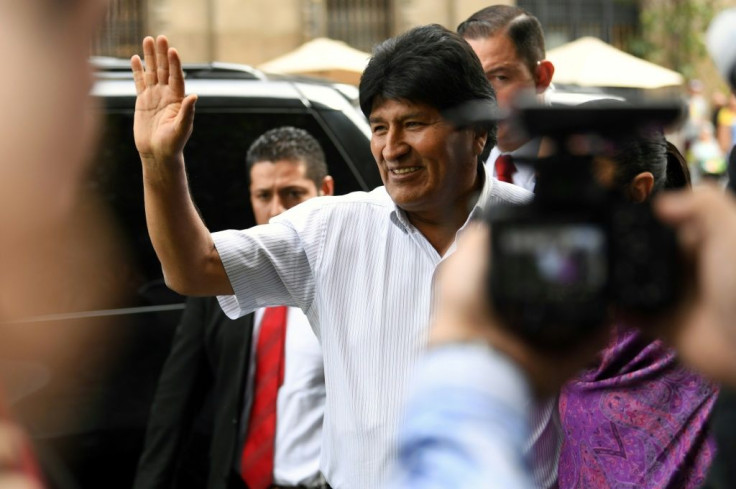Three Dead As Bolivian Military Lifts Fuel Blockade

Three protesters were killed and 30 wounded in clashes Tuesday with Bolivian security forces lifting an opposition blockade of fuel supplies to La Paz, the public ombudsman's office reported.
Troops and police had moved to lift the siege on a fuel plant in El Alto by supporters of ex-president Evo Morales that has caused acute shortages in nearby La Paz.
A spokesman for the ombudsman's office said two of the dead had been hit by gunfire, including a 31-year old man.
"We are asking the authorities for an investigation," the spokesman told AFP, adding that 30 people had been wounded, all of them supporters of Morales.
The army said in a statement that "agitators and vandals" had attacked and partially destroyed the Senkata fuel plant in El Alto, "using high-powered explosives."
The deaths brings to 27 the number of people killed since unrest began in the wake of October 20 elections, according to a tally by the Inter-American Commission on Human Rights.
A convoy of around 50 fuel tankers was able to leave the Senkata plant for the first time in more than a week after police and military forces using armored vehicles secured the route to neighboring La Paz.
The convoy included gasoline, diesel and liquefied petroleum gas (LPG) tankers.
Morales supporters erected barricades around the El Alto plant last week to protest what they said was a coup by interim President Jeanine Anez.
The blockade caused serious fuel shortages in La Paz, the scene of daily protests against the new government. Public transport has largely been paralyzed by the shortages.
Morales condemned the deaths in a tweet from Mexico, which granted him political asylum after his November 10 resignation.
"I denounce to the world that the de-facto government in the style of military dictatorships is again killing my brothers in El Alto, who are peacefully resisting the coup and are fighting in the defense of life and democracy."

Anez, the 52-year-old former deputy speaker of the Senate, declared herself the country's interim president last Tuesday, filling a vacuum left by Morales' departure and the resignations of several ministers.
Since the resignation of Morales -- the country's first indigenous president -- his supporters have demonstrated daily in the streets of La Paz and in some provincial cities to demand Anez's departure.
The deadliest clashes occurred last Friday in the central city of Cochabamba, where nine people were killed in a confrontation with the army and police.
Riot-police fired tear gas to disperse several thousand pro-Morales demonstrators near Cochabamba on Monday.
Hand-in-hand with the protests have been blockades of the main roads leading from agricultural regions to La Paz and other major cities.
Agricultural produce like meat, chicken and eggs was running short in high-altitude La Paz.
"There is no more chicken, there is only soup," said Eduardo Mamani, an employee at a restaurant specializing in chicken dishes.
Wilfredo Rojo, a minister in the interim government, said the Air Force was organizing an "airlift" to deliver meat to the city.
Lengthening queues in La Paz's produce markets and rising prices are an ominous reminder of the political crisis. The price of an egg, worth 1 boliviano -- or $0.14 -- last week, was selling for double that on Tuesday.
Anez has promised to usher in presidential and legislative elections as soon as possible, but has yet to declare a date for the polls.
Meanwhile, Morales has repeatedly criticized a decree by the interim government that exempts the military from criminal responsibility in responding to riots.
Another decree signed by Anez allocated $4.8 million to the armed forces for military equipment.
© Copyright AFP 2024. All rights reserved.




















